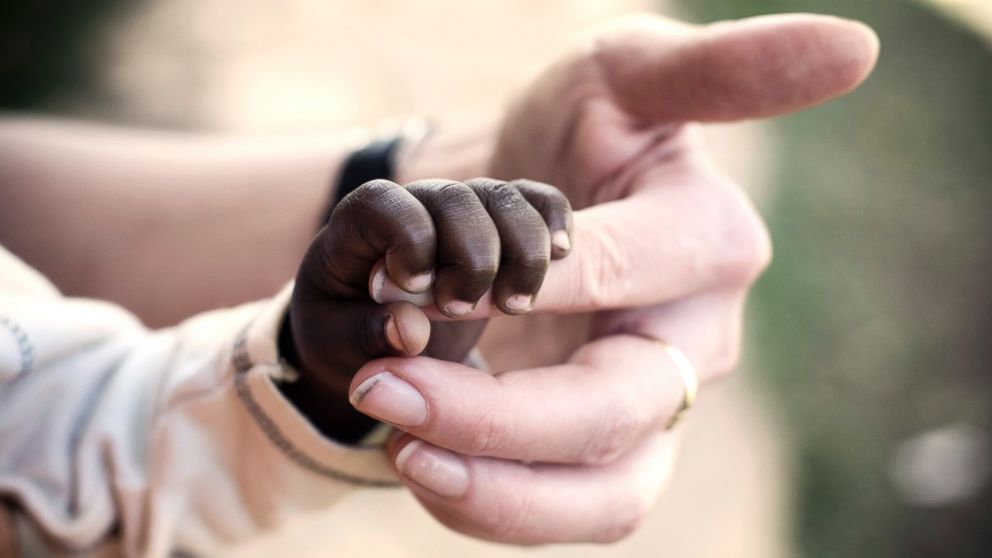'Are You Scared Their Birth Parents Will Try to Take Them Back?'
My husband and I are white, our kids are black, and yes, they were adopted.

— -- (Editor's Note: This article originally appeared on Babble.com. It has been reprinted here with permission. Disney is the parent company of both Babble and ABC News.)
I’m a mom of three kids: a kindergartner, a preschooler and a toddler. They are energetic, creative, intelligent little angels who can drive me batty with their incessant questions and demands for another snack. We are a typical American family — running the kids to and from school, engaging in extracurricular activities, and scheduling play dates. We go to church on Sunday mornings, have movie and popcorn nights on Fridays, and struggle desperately on Mondays.
However, we can’t go through a checkout line, eat at a restaurant, or play at the park without someone giving us a second glance, asking a question, or making an assumption.
My husband and I are white, our kids are black, and yes, they were adopted.
Among the slew of questions we receive -- most of them seemingly on repeat (What country are they from? Are they real siblings? How old are their birth parents?) -- we are often asked about open adoption. The initial question is, “Do they still see their birth parents?”
Open adoption has become an interesting phenomenon in the adoption world. The idea is that secrecy is nearly eradicated. Adopted kids have access to not only information (including pertinent medical history), but also a relationship with their birth parents.
When we confirm that, yes, our kids do see their birth parents, and birth siblings as well, we are commonly asked several follow-up questions:
"How can you share your kids with another set of parents? Isn’t that weird for you?”
Love doesn’t divide. it multiplies. Our children’s birth parents gave them life, and when they chose to place the children for adoption, they did so out of love and very careful consideration. We are honored to call our kids’ birth parents and siblings “family.”
Can openness be uncomfortable and complicated at times? Sure, just like most relationships. But is open adoption weird? Everyone “shares” their children with many people: family, friends, teachers, coaches, babysitters, mentors, and so on. We firmly believe there is no reason to keep our children from having an active and loving relationship with the people who created them and chose us to raise them.
1. “Isn’t open adoption confusing for your children?”Is your child confused when you add a member to your family? A new cousin? The woman who is marrying your brother? Or when you introduce your child to his or her new teacher or sports coach?
Our kids’ birth parents and siblings are part of our family, and, in fact, they started our family. We love our family orchard (yep, we don’t have the typical family tree) and cherish the opportunities we get for our children to have relationships with their birth families. We have, age-appropriately, explained to our children what adoption means, what birth and conception are, and how children can be born to one family, but raised by another.
2. “Aren’t you afraid the kids’ birth parents will try to take the children back?”
No. We used an ethical adoption agency and an experienced adoption attorney to make sure that we understood our legal rights. Our children’s birth parents had their own attorney, one who specialized in adoption and advocating for birth parent rights, to ensure that they were being treated fairly. The legal process is intricate and involves many steps in which both parties, the adoptive parents and the birth parents, have opportunities to make changes to the adoption plan. The child has a court-appointed representative, as well.




